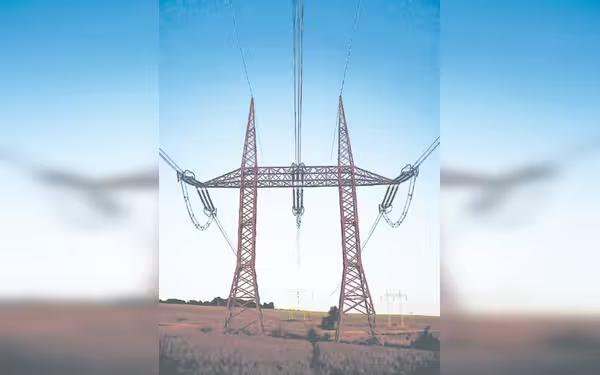Thursday, July 4, 2024 06:17 PM
CPPA Forecasts Potential Rise in Electricity Tariff
- Projected increase in base electricity tariff for FY 2024-25
- NEPRA hearing scheduled to assess proposed tariff adjustments
- Government focusing on reforms and efficiency improvements in power sector
 Image Credits: nation_pk
Image Credits: nation_pkThe Central Power Purchasing Agency (CPPA) predicts a potential rise in electricity tariffs for FY 2024-25, with a focus on reforms and efficiency improvements in the power sector.
The Central Power Purchasing Agency (CPPA) has forecasted a potential rise in the base electricity tariff by up to Rs 5 per unit for the Financial Year (FY) 2024-25. This projection comes as the total power purchase price for the upcoming fiscal year is anticipated to reach around Rs 3.58 trillion, surpassing the current costs. The CPPA has taken into account various factors such as demand growth, exchange rates, and hydrology to determine the consumer-end tariff for FY 2024-25.
The estimated costs include elements like inflation rates, interest charges, market operator fees, fuel expenses, and capacity charges. It is expected that capacity payments will constitute a significant portion of the total projected power purchase price, while energy costs will make up the remainder. If the increase in the power purchase price is implemented, consumers could see a hike in end prices from the current average of Rs 29.78 per unit to approximately Rs 35 per unit.
NEPRA has scheduled a hearing for May 23, 2024, to assess and decide on the proposed tariff adjustments. Should these changes be approved, consumers of DISCOs may face a considerable financial burden in the upcoming fiscal year. Additionally, the distribution margins of DISCOs are likely to rise, further contributing to the overall electricity expenses for consumers.
On another note, the Federal Minister for Power Division has clarified that there are no immediate plans to impose taxes on solar net metering. However, concerns have been raised regarding the potential impact of net metering on fiscal losses and circular debt in the future. The government is concentrating on implementing reforms to enhance the transmission system and promote the utilization of solar energy to alleviate the strain on the power generation system.
Efforts are underway to improve customer service, combat power theft, and ensure better service delivery in distribution companies. The minister has suggested the potential privatization of certain departments through long-term operational management contracts to enhance efficiency before any privatization initiatives are set in motion.
The projected increase in electricity tariffs for FY 2024-25 highlights the challenges faced by the power sector in balancing costs and consumer affordability. As regulatory bodies review these proposals, it is essential for stakeholders to consider the implications on end-users and the overall energy landscape. The government's focus on reforms and efficiency improvements signals a commitment to addressing the complexities of the power sector for a more sustainable and reliable energy future.













